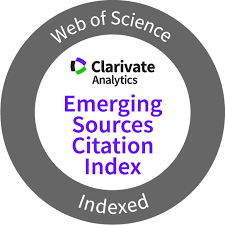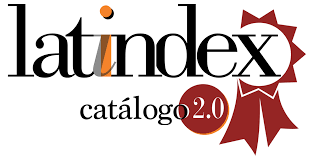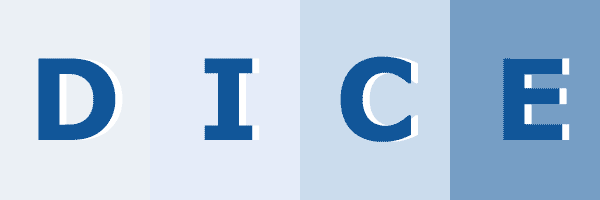Approaches to accessibility and inclusion in Public Relations undergraduate programs in Brazilian public universities
DOI:
https://doi.org/10.5783/revrrpp.v14i27.857Keywords:
Inclusive education, University education, Public Relations, Brazilian universities, functional diversityAbstract
This work aims to investigate the approaches to inclusion and accessibility in the Public Relations undergraduate programs offered by Brazilian public universities, filling a perceived gap in the literature in the area of communication and in studies on inclusive education in higher education, whose focus is generally on teacher training through undergraduate courses. Assuming that people do not have disabilities, but rather limited by the society through the many barriers imposed, which frequently prevent them the exercise of their full rights as citizens. In this context, we verified that, although representing 8,4% of the total Brazilian population aged 2 and older, people with disabilities occupy only 2% of the positions in large companies and only 0,4% of the spots in undergraduate programs in the country. To change this reality, consistent investments in education and training are needed, including in higher education. Thus, we have reflected on the academic evolution of the public relations professionals, considering that they are responsible for mediating between the organisations and their audiences, with their actions impacting the consolidation of a inclusive culture in the public, private and third-sector organisations. Taking as an initial motivation our own experiences as researchers, professors and students in a public university in the Northeast region of Brazil, the methodology applied to conduct this research includes a qualitative approach. Regarding technical procedures, we carried out a documental and literary review, using as our object the National Curricular Guidelines and the Political Pedagogical Projects of 13 undergraduate courses with active status on the Brazilian Ministry of Education portal, all of which are taught in person, across the five regions of the country: North, Northeast, Southeast, South and Midwest. The analysis of the data revealed a transition moment, in which all the universities are making adjustments to include university extension activities in the curriculum of their undergraduate courses. We have therefore classified four levels of approach to inclusion: a) political-institutional, restricted to standardization through official policies and documents; b) political-assistance, whose focus is on the direct assistance to students with disabilities, and enabled by to the creation and work of Accessibility Centers and Inclusion Committees in Higher Education Institutions (HEIs); c) didactic-methodological, which comprises the development and application of methodologies and/or assistive technologies in the classroom; d) scientific-experimental, concerns the role of HEIs in spreading knowledge and developing assistive technologies for people with disabilities. The results of the research revealed that the promotion of inclusive education as depends on various actors and situations, and the dynamic and complex articulation between the state, civil society and the HEIs, including the collaboration in the creation of national policies for special education in higher education. On the other hand, the existence of an inclusive discourse in educational career projects, through references to public policies on specialized education and inclusion centers, cannot be interpreted as a result of the effectiveness of inclusive education policies in Brazilian higher education institutions. studied. The data shows that the speeches do not necessarily translate into changes in the school curriculum with the introduction of subjects on accessibility and inclusion.
Downloads
References
Bardin, L. (2009). Análise de Conteúdo. Lisboa, Portugal; Edições 70, LDA.
Brasil (1988). Constituição da República Federativa do Brasil, 1988.
Brasil (1948). Declaração Universal dos Direitos Humanos. Assembleia Geral das Nações Unidas.
Brasil (2005, 22 dezembro). Decreto nº 5.626 de 22 de dezembro de 2005. Regulamenta a Lei nº 10.436, de 24 de abril de 2002, que dispõe sobre a Língua Brasileira de Sinais – Libras, e o art. 18 da Lei nº 10.098, de 19 de dezembro de 2000. Diário Oficial da União, seção 1, Brasília, DF, p. 28.
Brasil (2011, 18 de novembro). Decreto nº 7.611 de 17 de novembro de 2011. Dispõe sobre a educação especial, o atendimento educacional especializado e dá outras providências. Diário Oficial da União, seção 1, Brasília, DF, p. 12.
Brasil (2023). Instituto Nacional de Estudos e Pesquisas Educacionais Anísio Teixeira [INEP]. Resumo técnico do Censo da Educação Superior 2021. Brasília, DF. https://download.inep.gov.br/publicacoes/institucionais/estatisticas_e_indicadores/resumo_tecnico_censo_da_educacao_superior_2021.pdf.
Brasil (1991, 24 julho). Lei nº 8.213 de 24 de julho de 1991. Dispõe sobre os Planos de Benefícios da Previdência Social e dá outras providências (Lei de Cotas). Diário Oficial da União. Brasília, DF. https://www.planalto.gov.br/ccivil_03/leis/l8213cons.htm
Brasil (2015, 7 de julho). Lei nº 13.146 de 6 de julho de 2015. Lei Brasileira de Inclusão – LBI. Diário Oficial da União, Brasília, DF. https://www.senado.leg.br/bdsf/bitstream/handle/id/554329/estatuto_da_pessoa_com_deficiencia_3ed.pdf
Brasil (2016). Lei Nº 13.409, de 28 de dezembro de 2016. Altera a Lei nº 12.711, de 29 de agosto de 2012, para dispor sobre a reserva de vagas para pessoas com deficiência nos cursos técnico de nível médio e superior das instituições federais de ensino. Diário Oficial da União, Brasília, DF. https://www.planalto.gov.br/ccivil_03/_Ato2015-2018/2016/Lei/L13409.htm
Brasil (2013a). Ministério da Educação [MEC]. Documento Orientador Programa Incluir - Acessibilidade na Educação Superior SECADI/SESu - 2013. Brasília, DF. http://portal.mec.gov.br/index.php?option=com_docman&view=download&alias=12737-documento-orientador-programa-incluir-pdf&category_slug=marco-2013-pdf&Itemid=30192
Brasil (2013b, 13 novembro). Ministério da Educação. Resolução CNE/CES 2/2013. Diretrizes Curriculares Nacionais do curso de graduação em Relações Públicas. Diário Oficial da União. Brasília, DF. http://portal.mec.gov.br/index.php?option=com_docman&view=download&alias=14243-rces002-13&category_slug=setembro-2013-pdf&Itemid=30192.
Brasil (2001, 9 julho). Ministério da Educação. Parecer CNE/CES 492/2001. Diretrizes Curriculares Nacionais dos cursos de Filosofia, História, Geografia, Serviço Social, Comunicação Social, Ciências Sociais, Letras, Biblioteconomia, Arquivologia e Museologia. Diário Oficial da União. Brasília, DF. http://portal.mec.gov.br/cne/arquivos/pdf/CES0492.pdf.
Brasil (2018, 17 dezembro). Ministério da Educação. Resolução nº 7/2018. Estabelece as Diretrizes para a Extensão na Educação Superior Brasileira e regimenta o disposto na Meta 12.7 da Lei nº 13.005/2014, que aprova o Plano Nacional de Educação – PNE 2014-2024 e dá outras providências. Diário Oficial da União. Brasília. https://normativasconselhos.mec.gov.br/normativa/pdf/CNE_RES_CNECESN72018.pdf.
Castro, O.Y., Perboni, F., & Sánchez, D. (2024). Inclusão e Diversidade no Ensino Superior. Ciências Humanas, 28(132). https://doi.org/10.5281/zenodo.10829880 .
Ferrari, M.A., & Grohs, A. C.C.P. (2017). Pesquisa nacional dos cursos de Relações Públicas no Brasil: práticas dos coordenadores e docentes no processo ensino-aprendizagem. Revista Internacional de Relaciones Públicas, 7(14), 43–62. https://doi.org/10.5783/revrrpp.v7i14.492
Ferreira de Oliveira, G., Escarabello Junior, J.R., & Maciel, S. (2023). O papel das Relações Públicas e da Comunicação na inclusão de pessoas com deficiência nas organizações: uma revisão sistemática. Revista Internacional De Relaciones Públicas, 13(26), 21–40. https://doi.org/10.5783/revrrpp.v13i26.846
Furlan, E.G.M., Faria, P.C. de, Lozano, D., Bazon, F.V.M., & Gomes, C. (2020). Inclusão na educação superior: formação e experiência docente. Avaliação: Revista da Avaliação da Educação Superior, 25(2), 416–438. https://doi.org/10.1590/S1414-4077/S1414-40772020000200010
Gil, A.C. (2023). Métodos e técnicas de pesquisa social. São Paulo: Atlas. 7a Edição
Instituto Brasileiro de Geografia e Estatística [IBGE]. (2023). Pesquisa Nacional por Amostra de Domicílios (PNAD): Pessoas com Deficiência 2022. Rio de Janeiro: IBGE.
Instituto Ethos & Banco Interamericano de Desenvolvimento. (2016). Perfil social, racial e de gênero das 500 maiores empresas do Brasil e suas ações afirmativas. São Paulo: Instituto Ethos. https://www3.ethos.org.br/wp-content/uploads/2016/05/Perfil_Social_Tacial_Genero_500empresas.pdf .
Kunsch, M.M.K. (2003) Planejamento de Relações Públicas na Comunicação Integrada. São Paulo: Summus.
Marconi, M. A, & Lakatos, E. M. (2017). Fundamentos de Metodologia Científica. 8ª edição. São Paulo: Atlas.
Pereira, B.K.G. (2015). As relações públicas e as estratégias para a inclusão de deficientes no ambiente organizacional. 61f. TCC. https://cursos.unipampa.edu.br/cursos/relacoespublicas/files/2015/04/As-rela%C3%A7%C3%B5es-p%C3%BAblicas-e-as-estrat%C3%A9gias-para-a-inclus%C3%A3o-de-deficientes-no-ambiente-organizacional.pdf.
Pereira, A. P. E. B. de S., & Rebelo, A. S. (2022) Indicadores de matrículas do público-alvo da Educação Especial na Educação Superior no Brasil (2008-2018). Série-Estudos - Periódico do Programa de Pós-Graduação em Educação da UCDB, 27(60), 287–305. https://doi.org/10.20435/serie-estudos.v27i60.1544.
Pereira, R.R., da Costa Silva, S.S., Faciola, R.A., Pontes, F.A R., & Holanda Ramos, M.F. (2016). Inclusão de estudantes com deficiência no ensino superior: uma revisão sistemática. Revista Educação Especial, 1(1), 147–160. https://doi.org/10.5902/1984686X19898
Poker, R. B., Valentim, F. O. D., & Garl, I. A. (2018). Inclusão no ensino superior: a percepção de docentes de uma instituição pública do interior do estado de São Paulo. Psicologia Escolar e Educacional, 22(spe), p. 127–134. https://doi.org/10.1590/2175-3539/2018/010.
Romañach Cabrero, J., & Lobato, M. (2007). Diversidad funcional: Nuevo término para la dignidad en la diversidad del ser humano. Comunicación y discapacidades: actas do Foro Internacional, 321-330. https://dialnet.unirioja.es/servlet/articulo?codigo=2393402
Trigueiro, M.G.S. (2003) Governo e gestão da educação superior. In: Maria Susana Arrosa Soares. (Org.). A educação superior no Brasil. Brasília: CAPES/GEU/UNESCO, 01, 121-143.
Veiga, I.P A. (2002). Projeto político-pedagógico da escola: uma construção possível. 14. ed. Campinas, SP: Papirus. Coleção Magistério: Formação e Trabalho Pedagógico.
Downloads
Published
How to Cite
Issue
Section
License
Copyright (c) 2024 Ribeiro Oliveira Josilene, Hanna Pachu Hamad Ferreira, Jamile Miriã Fernandes Paiva

This work is licensed under a Creative Commons Attribution-NonCommercial-NoDerivatives 4.0 International License.
Authors publishing in this journal agree to the following terms:
a. Authors retain copyright and grant the journal the right to be the first publication of the work as licensed under a Creative Commons Attribution License that allows others to share the work with an acknowledgement of authorship of the work and initial publication in this journal.
b. Authors may separately enter into additional arrangements for non-exclusive distribution of the version of the work published in the journal (e.g., placing it in an institutional repository or publishing it in a book), with an acknowledgement of initial publication in this journal.
c. Authors are allowed and encouraged to disseminate their work electronically (e.g. in institutional repositories or on their own website) before and during the submission process, as it can lead to productive exchanges, as well as earlier and higher citation of published work (see The Effect of Open Access).





